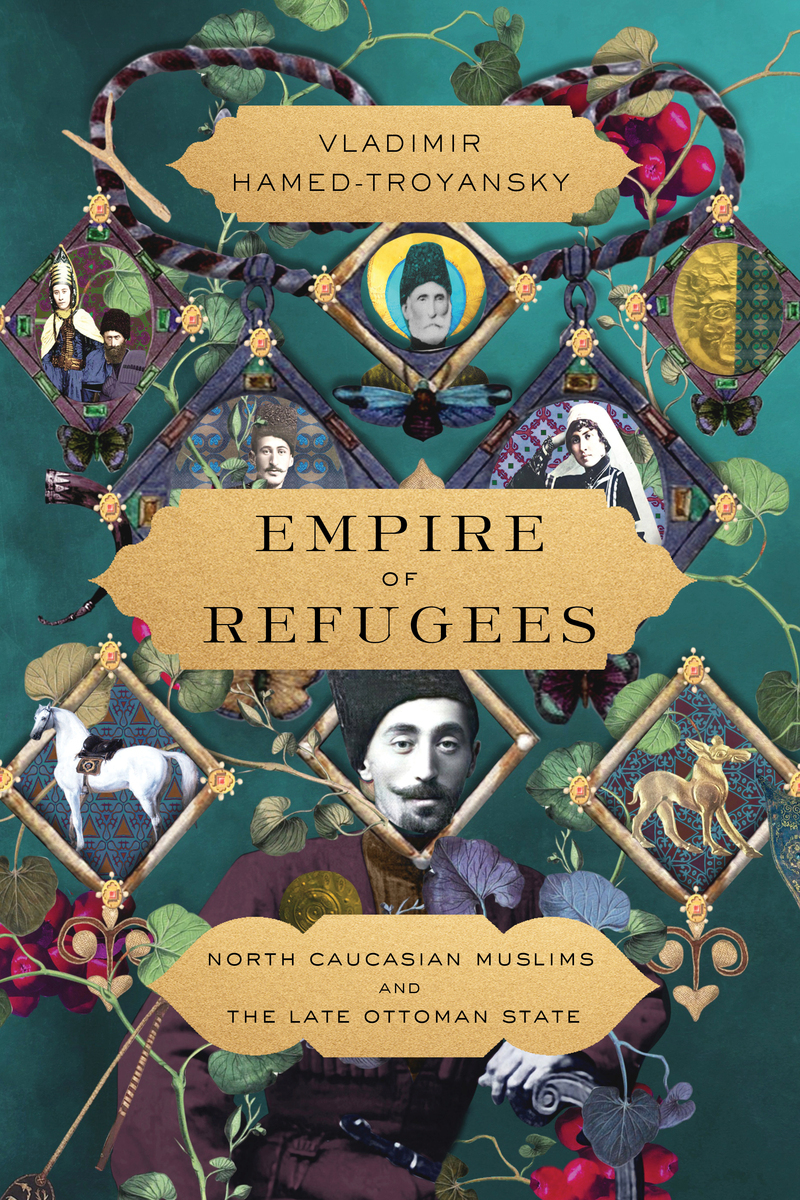
Specialization:
Education:
Bio:
Dr. Vladimir Hamed-Troyansky is a historian of global migration and forced displacement and Associate Professor of Global Studies at the University of California, Santa Barbara. His research examines Muslim refugee migration and its role in shaping the modern world. He is the author of Empire of Refugees: North Caucasian Muslims and the Late Ottoman State (Stanford University Press, 2024). Dr. Hamed-Troyansky is currently working on his second monograph — a transnational history of Muslim displacement in the Middle East, Central Asia, and South Asia in the nineteenth and twentieth centuries. His articles appeared in Past & Present, Comparative Studies in Society and History, International Journal of Middle East Studies, and Slavic Review. He received a Ph.D. in History from Stanford University and served as a postdoctoral fellow at Columbia University.
Dr. Hamed-Troyansky conducted archival research and ethnographic fieldwork in Turkey, Jordan, Bulgaria, Romania, Georgia, Armenia, Azerbaijan, Kazakhstan, Kyrgyzstan, Uzbekistan, Pakistan, the United Kingdom, the United States, and Russia, including the autonomous republics of Dagestan, North Ossetia-Alania, and Kabardino-Balkaria. He works with sources in Arabic, Ottoman and modern Turkish, Russian, and Bulgarian. His research has been supported by, among others, the National Endowment for the Humanities, the American Council of Learned Societies, the Social Science Research Council, and the Fulbright Program. He held residential research fellowships at the Stanford Humanities Center, Freie Universität Berlin, and the American research centers in Jordan, Turkey, and Bulgaria.
Dr. Hamed-Troyansky welcomes graduate projects in global refugee history and the modern history of the Middle East and the Caucasus.
Publications:

Book
Empire of Refugees: North Caucasian Muslims and the Late Ottoman State. Stanford University Press, 2024.
Co-Winner | 2025 W. Bruce Lincoln Book Prize, Association for Slavic, East European, and Eurasian Studies
Co-Winner | 2025 Barbara Jelavich Book Prize, Association for Slavic, East European, and Eurasian Studies
Winner | 2025 Pacific Coast Branch Book Award, Pacific Coast Branch of the American Historical Association
Winner | 2025 Robert L. Jervis and Paul W. Schroeder Best Book Award, International History and Politics Section, American Political Science Association
Co-Winner | 2025 Joseph Rothschild Prize in Nationalism and Ethnic Studies, Association for the Study of Nationalities
Co-Winner | 2025 CESS Book Award in History and the Humanities, Central Eurasian Studies Society
Winner | 2024 Alixa Naff Prize in Migration Studies, Moise A. Khayrallah Center for Lebanese Diaspora Studies
Winner | 2024 Gold Medal in the History (World) category, Independent Publisher Book Awards
Honorable Mention | 2025 Roger Owen Book Award, Middle East Studies Association
Honorable Mention | 2025 President's Book Award, Social Science History Association
Honorable Mention | 2025 Allan Sharlin Memorial Book Award, Social Science History Association
Empire of Refugees reveals the origins of refugee resettlement in the modern Middle East. It focuses on the migration of about a million Muslim refugees from Russia to the Ottoman Empire between the 1850s and World War I. The book argues that, in the second half of the nineteenth century, the Ottoman government created a Muslim refugee regime, predating international refugee regimes set up by the League of Nations and the United Nations. Grounded in archival research in over twenty public and private archives across ten countries, this book contests the boundaries typically assumed between forced and voluntary migration, and refugees and immigrants, rewriting the history of Muslim migration in the nineteenth and early twentieth centuries.
See the digital map of over 1,100 North Caucasian refugee villages in Turkey, Jordan, Syria, and Iraq.
Listen to podcast episodes about the book: Ottoman History Podcast, New Books Network (Middle East studies and Russian and Eurasian studies channels), Turkey Book Talk, The Eurasian Knot, The Lausanne Project, and Converging Dialogues.
Read features of the book in Jadaliyya, 7iber (in Arabic), Oriente Medio (in Spanish), and East Journal (in Italian).
The book's translations into Turkish and Russian are forthcoming in 2026 and into Arabic in 2027.
Peer-Reviewed Articles
“Abandoned Land: Muslim Refugees’ Property in the Post-Ottoman Balkans,” Past & Present (2025). [PDF]
"Letters from the Ottoman Empire: Migration from the Caucasus and Russia's Pan-Islamic Panic," Slavic Review 82, no. 2 (2023): 311–33. [PDF]
Honorable Mention | 2023 Ab Imperio Award for the best study in new imperial history and history of diversity in Northern Eurasia.
“Welcome, Not Welcome: The North Caucasian Diaspora's Attempted Return to Russia since the 1960s,” Kritika: Explorations in Russian and Eurasian History 24, no. 3 (2023): 585–610. [PDF]
“Ottoman and Egyptian Quarantines and European Debates on Plague in the 1830s–1840s,” Past & Present 253 (2021): 235–70 [PDF]
“Becoming Armenian: Religious Conversions in the Late Imperial South Caucasus,” Comparative Studies in Society and History 63, no. 1 (2021): 242–72. [PDF]
Honorable Mention | 2022 Best Article Award in Kurdish Studies, UCF Kurdish Political Studies Program.
“Circassian Refugees and the Making of Amman, 1878–1914,” International Journal of Middle East Studies 49, no. 4 (2017): 605–23. [PDF]
Winner | 2018 Best Article Prize, Syrian Studies Association.
Winner | 2018 Khayrallah Prize in Migration Studies, Moise A. Khayrallah Center for Lebanese Diaspora Studies.
Roundtable Articles
“Hijra from the Russian Empire and the Soviet Union: Middle East Routes of Muslim Displacement,” International Journal of Middle East Studies 56, no. 3 (2024): 490–94. [PDF]
Peer-Reviewed Chapters
Courses:
GLOBL 1 Global History, Culture, and Ideology
GLOBL 112 Global Refugee Migration
GLOBL 183 Global Middle East
GLOBL 261 Global Ethnic Cleansing
GLOBL 292A Global Migration
GLOBL 292IB Displacement in the Middle East and Russia/Soviet Union